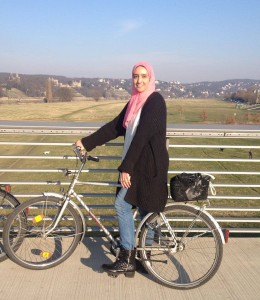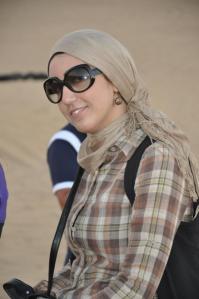Today, we have the honor of posting a piece from the amazing writer and journalist Alex McAnarney. Alex is a native of El Salvador and former resident of Mexico City. Her work focuses on migration, youth, gangs, and health and can be found at perishmotherland.tumblr.com.
Her post today, though longer than what we usually publish, is a testament to strength, wisdom, and love. We ask you all to take a little extra time over the weekend and experience all the beauty and honesty this post has to offer. We ask you all to recognize your own triggers, and take care of yourselves while reading, and as always, we ask you all to honor the wisdom we are blessed to share with you today.
When Friederich Nietzsche wrote Thus Spoke Zarathustra, he developed the idea of the “Overman” (übermensch). While the concept of the Overman remains up for debate, several interpretations fall along the following: guided by individually crafted values, the Overman lives with purpose, possessing the power to impact others around him (or, I controversially interject, her). The Overman attempts to go above and beyond the human
In stark opposition to a strength that surges from the individual will to transcend humanness, morality, and likely— given Nietszche’s struggles with migraines and neurosyphillitic infections— illness, I’ll quote Psalm 46:1-3: “God is our refuge and strength, an ever-present help in trouble. Therefore we will not fear, though the earth give way and the mountains fall into the heart of the sea, though its waters roar and foam and the mountains quake with their surging.”
I can’t say I know what the meaning of strength really is. To ground yourself in the absurd, greyness of life and live with a measure of creative dynamism to carve out your own rugged path independent of others—a life of perpetual overcoming— is a type of strength. Yet, to relinquish yourself and your trust to someone else when the cacophony of “mountains falling into the sea” becomes too deafening, that too is a type of strength. One thing about strength is clear: I ask for it. A lot.
June 1994
Abue, my great-grandmother, is dead. I find out three days after they bury her. They didn’t want me to see her when she was in the coffin because they thought I wasn’t strong enough. I think it would have been nice to kiss her forehead and say bye like I did when she was going to sleep. I get mad at mom for deciding for me. From the back seat of the Toyota, I see that Tita, my grandma and Abue’s daughter, is sad. Her chin whiskers quiver but no tears come out. When my mom pulls at my hair when she brushes it I think of Abue and how she brushed my hair, expertly, gently. It makes me sad, but I think of Tita’s quivering chin whiskers and tearless eyes to suppress the waterworks. When she comes to visit us, I ask her why she doesn’t cry.
“Tears are how bad things stain you. They’re hard to wash out and forget,” she says.
I shroud myself in this. When the other girls at school pick on me because my hair is like a beehive, I try hard not to cry and get mad instead, catching bees in empty butter containers and letting them roast in the Mexican sun. When I get in trouble for telling made up stories about sleeping in a dungeon to my classmates, I really, really try not to cry. But my parents are really, really mad. When I get an egg accidentally thrown in my eye at a party, I don’t cry. I just scream and scream and scream and try to punch the boy who did it.
June 1997
When Dad leaves, I try my hardest to only cry once. It’s really hard because mom is crying and the kids at school suck, especially the boys. Daddy doesn’t cry. I know he feels bad, but I guess he’s strong? We always say Dads are strong at school. I want to be strong and not cry because I’m sad or because mom cries. I grab my little prayer book which I read every night and squeeze it in my hands trying to draw out a few drops of meaning. I only get half burnt flakes of pages. The book belonged to my mom, and before her, Tita. I don’t know if I should ask the fading doodle of a girly boy with a yellow hat on his blonde head. I ask him anyway, “Give me the strength to never cry.”
June 2003
I don’t tell anyone because I was passed out, drunk and possibly drugged. I hide the bruises. I don’t mention his attempts to keep me in the room after, calling me his Latina Lolita. I claim him as a notch of conquest achieved on a fun weekend in Key West. I don’t need to be a victim, I can keep saying what I’m saying: He was a 25 year old Marine my 16-year old self managed to seduce. I shove every shred of despair into a tightly sealed jar and lock it away in a mental cabinet, never to be explored again. Individual responsibility is strength, after all. In the meantime, I ask the 500 mg of ibuprofen I just swallowed “Give me strength to walk straight tonight.”
January 4, 2005
There is pain. There are rivulets of blood pouring from somewhere that I cannot locate. My vision is a pinhole of post-Grand Mal seizure confusion that envelops the world in a blissfully anesthetized miasma save for one little opening through which I can see blood, a stretcher, a worried fat man.
“-hit you?”
The pinhole is slowly stretched by halogen lights into a gaping, heaving asshole of reality I’m not ready to enter. My arm lifts heavily to wipe some drool that feels embarrassingly chunky. Through the asshole I see: bloody chunks of teeth and lip clustered on my hand.
“Did somebody hit you?”
“I had a seizure,” I mutter.
My shoes are off. My hand is holding an empty pillbox. My shoulders are shrouded in a brown EMT blanket. My mouth is red, dripping, and toothless.
I must have collapsed in the parking lot. I press my nose. Not broken. No plastic surgery freebie for me. It’s funny. I laugh with a blood choked gurgle.
A male EMT looks at me funny. I keep laughing and trace the remaining bits of canine and fronts with my index finger. Jagged stalactites hanging in anticipation of the next earthquake, because the aftershocks always happened. Little bastards, won’t get the pleasure I begin to try pulling out the bits with my own hands.
“Don’t do that!” the resident advisor sitting next to me swats away my offending hand.
You don’t understand. I think to myself, they need to go. They were weak!
I don’t cry. I try my hardest to be hilarious even though I have no idea how or where I am. As I do that, I keep trying to pull my bits of teeth out. To my fingers, I plea “Give me the strength to pull this weakness out of my body.” Continue reading →









